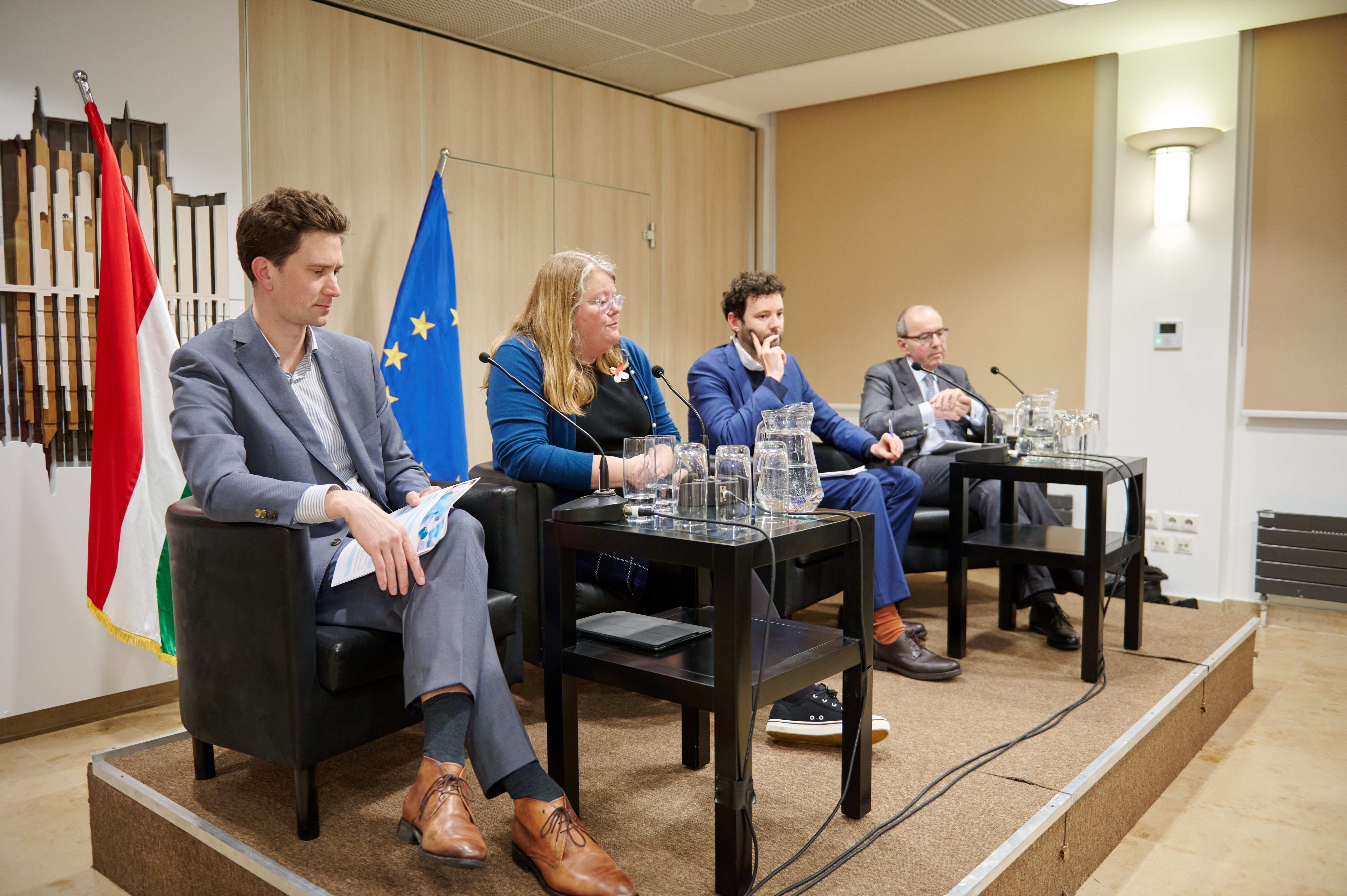The upcoming review of the EU pharmaceutical legislation is long awaited by Member States as well as by all the interested stakeholders. In the context of the post-Covid times, healthcare systems are facing new challenges that call for effective response.
One of the key issues is how the EU can boost innovation where it is really needed and what will guarantee that new measures do not adversely affect the sustainability of health-systems and pharmaceutical manufacturing. The Commission is expected to publish its proposal in early 2023, therefore the Hungarian Permanent Representation considered it is timely to have an open debate on possible new instruments that would meet the goal of the pharmaceutical strategy: ensuring access, affordability and availability.
The conference “Sustainable ways to support pharmaceutical innovation” took place on 12 January 2023 at the Permanent Representation of Hungary in cooperation with the Slovak Presidency of the Visegrad 4 Group, the Permanent Representation of the Netherlands, and Medicines for Europe.

The debate organized in panel discussions focused on the ways to incentivise innovation tackling AMR, to ensure equitable access through the right modulation of regulatory and market incentives and the sustainability aspects.
National health systems in Europe are famous for their inclusivity and that no patient is left behind. This is a fundamental value we have to preserve, said Katalin Molnár deputy permanent representative of Hungary. A good balance needs to be found and we need to identify unmet medical needs and free-up as much resources as possible to extend equitable access to well-functioning therapies. Moreover it is important to recognize the vulnerability of global pharma value chains. Therefore the need for a pharmaceutical regulatory environment that supports European manufacturing and consolidates distribution channels.

The event was attended by around one hundred participants and among the speakers could we hear from the representatives of the European Commission, the European Parliament, the permanent representations, the national health authorities, the organizations of patients, insurers and pharma industries.

